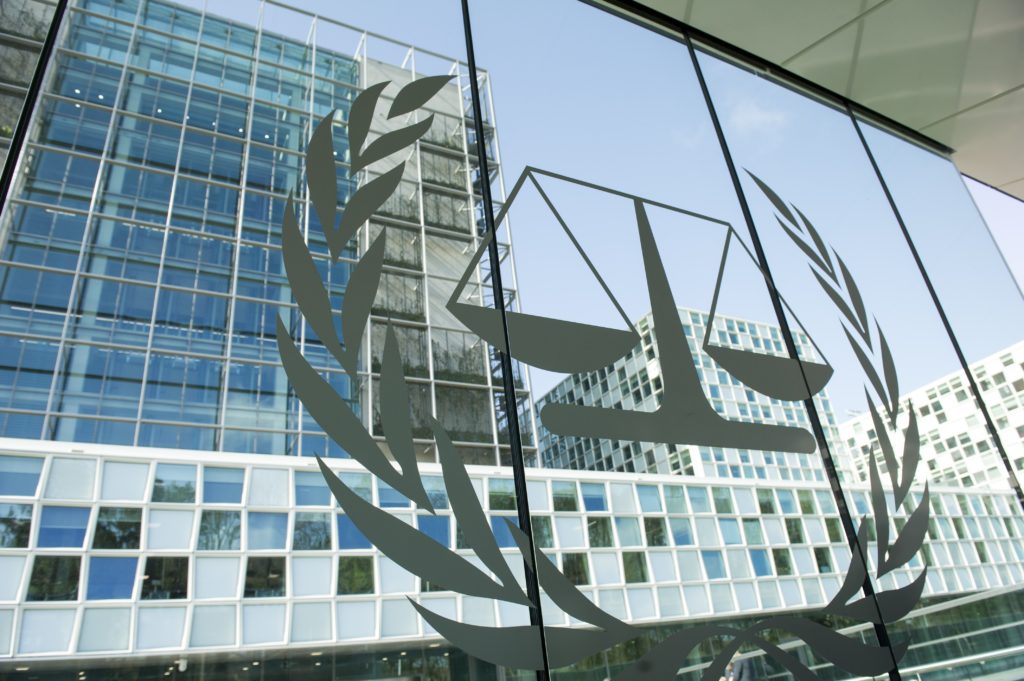
The International Criminal Court (ICC) is “already dead to us” National Security Adviser John Bolton told the Federalist Society recently. The U.S. will, he said, resist the court “by any means necessary.”
Why would the Trump Administration take such a hard line against “the world’s court of last resort”? Founded in 2002, in the wake of the Rwandan and Yugoslavian genocides and mass rapes, the international body was supposed to try evildoers who would otherwise escape justice due to broken legal systems in failed states.
Opposing the court is not a new position for the U.S. or Ambassador Bolton. The Bush Administration refused to sign the court’s implementing treaty in 2003, contending that it would lead to trials of U.S. soldiers and spies by a politically turbo-charged body located in Europe. At the time, many European leaders opposed President Bush’s war in Iraq and questioned its actions in the war on terror, including rendition and holding prisoners indefinitely at Guantanamo Bay. Ambassador Bolton was even more prescient. He warned, in 1998, when the formation of body was first being debated in Rome, that it would be ineffective, unaccountable and overly political.
Now, U.S. soldiers may face charges for activities in Afghanistan. While the U.S. is not a signatory of the treaty, Afghanistan is, and the court claims jurisdiction over any actions taken there. If the ICC begins prosecuting American “war crimes” abroad, commanders will temper their battle plans, soldiers will become gun-shy and civilians will refuse to serve. America’s sovereign right to defend itself will be weakened. Israel is also expected to be another target, as the Palestinian Authority has agreed to the court’s jurisdiction and has already requested a probe.
In practice, the International Criminal Court is a failed experiment.
Its trials appear selective and political. While the court has received more than 10,000 written complaints referring to 139 countries, according to the London-based Africa Research Centre, it has focused its prosecutions exclusively on sub-Saharan Africans. Of the 10 investigations in progress, nine relate to African leaders or rebel leaders. (The only non-African case was against Serbian extremists.) This leads to the all-too-easy accusation that the court is racist, neo-colonialist or, in the words of one African writer, “white justice for black Africans.” Following a 2013 African Union summit, Ethiopian Prime Minister Hailemariam Desalegn denounced the court as a “racial hunt”. While these charges are hyperbolic, the court’s selective prosecutions have undermined its credibility among Africans.
The ICC has also not been successful in Africa. The court’s first chief prosecutor, Luis Ocampo, pledged to indict and try the leaders of Lord’s Resistance Army (LRA), a Ugandan terror group linked to slaughter, rape and kidnapping, by the end of 2005. The LRA’s leaders have yet to face justice. Almost a decade ago, the court indicted Sudan’s President Omar al-Bashir. No trial has occurred and Bashir continues to travel freely to Arab and African states that have signed the ICC’s implementing treaty. The court has not delivered on its promise to bring justice to people who have none.
As a result, African nations are pulling out. South Africa, Burundi, Gambia have voted to withdraw from the ICC and other African states are joining the stampede for the exit.
The ICC likes to refer to itself as the world’s court, but it represents fewer and fewer of world’s nations. The U.S., Israel, China and Russia have refused to ratify the court’s implementing Treaty of Rome. The African Union itself has openly criticized the ICC and debated leaving the court’s jurisdiction en masse.
The court’s leaders have, in addition, not held themselves to particularly high standards. Chief prosecutor Ocampo, defended his use of offshore bank accounts by saying that his salary was insufficient. Such a remark hardly inspires confidence.
Even worse for the court’s credibility are the allegations brought by David Nyekorach Matsanga, president of the Pan-African Forum, that Silvia Fernández de Gurmendi, the ICC’s president, allegedly received illegal sums totaling some $17 million between 2004 and 2015. These payments, Matsanga said, were to bribe prosecution witness against Sudan’s president. A court spokesman dismissed Matsanga’s evidence as a falsified invoice and unverified bank records. (Matsanga is no angel. He was spokesman for the infamous Lord’s Resistance Army in the 1990s.) Still, the evidence deserves an impartial review.
The International Criminal Court is a noble ideal but a flawed institution. Far better to encourage nations to develop courts that are accountable to the victims and free from charges of selective enforcement or foreign intervention. South Africa’s Truth and Reconciliation Commission, and the Moroccan’s Equity and Reconciliation Commission — a government body subject to oversight by the people’s representatives — have heard hard cases and delivered judgements respected across the political spectrum. The two institutions aimed to rehabilitate victims, and pay compensation for state outrages against them.
That method would be a better model for Africa than a court funded and run from Europe.






Recent Comments